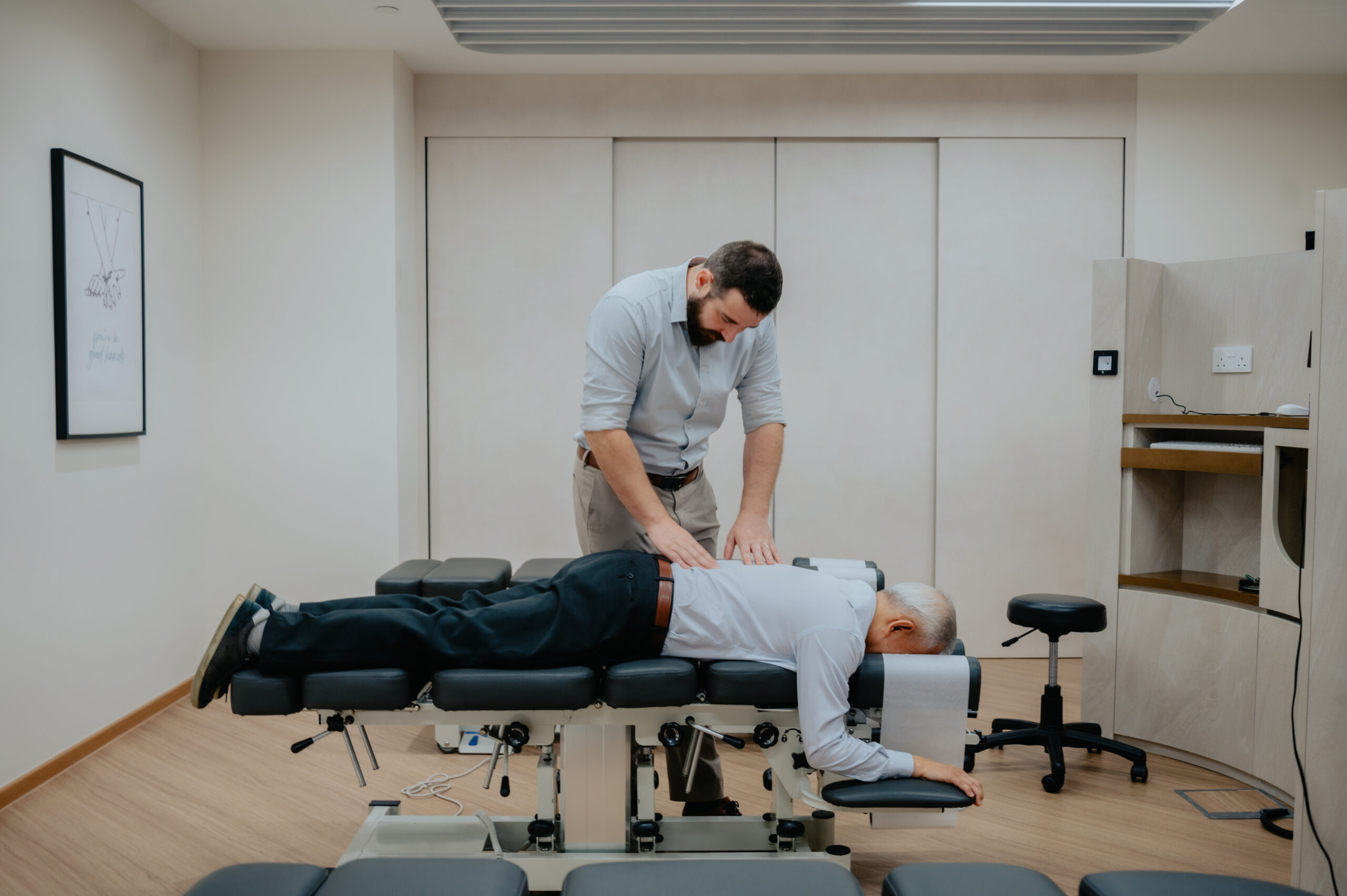Muscle tension is a common condition that many of us have experienced at some point in our lives. Whether it’s the result of a tough workout, stress, or poor posture, that tight, uncomfortable feeling in your muscles can be quite bothersome. In this blog post, we’ll delve into the world of muscle tension, exploring its causes, symptoms, and most importantly, how to find relief.
What causes muscle tension all over the body?
Muscle tension can occur for a variety of reasons, and understanding its root causes is the first step towards effective relief. Here are some common culprits:
1. Physical activity
One of the most common causes of muscle tension is strenuous physical activity. When you push your muscles beyond their usual limits during exercise or engage in a new, intense workout routine, it can lead to micro-tears in the muscle fibers, resulting in that achy feeling known as muscle tension.
2. Stress and anxiety
The mind-body connection is powerful, and stress and anxiety can manifest physically as muscle tension. When you’re stressed, your body releases stress hormones like cortisol, which can cause your muscles to tighten up in response to the perceived threat.
3. Poor posture
In the age of technology, poor posture has become a widespread issue. Hours spent hunched over screens or slouched in chairs can lead to muscle tension, particularly in the neck, shoulders, and back.
4. Dehydration
Dehydration can contribute to muscle tension, as it affects muscle function and flexibility. Without adequate hydration, your muscles can cramp and become more susceptible to tension.
5. Injury
Physical injuries, such as sprains or strains, can result in localised muscle tension around the affected area as your body tries to protect and heal itself.
With so many potential causes with various implications and severity, it is therefore essential to consult with a healthcare provider if you experience persistent muscle tension or pain.
What’s the difference between active and passive tension in muscles?
Understanding the two types of muscle tension—active and passive—can provide valuable insights into how to address them.
Active tension
Active tension refers to the contraction of muscles when they are actively engaged in movement. For example, when you lift a heavy object, your muscles contract to generate the necessary force. This type of tension is generally short-lived and purposeful.
Passive tension
Passive tension, on the other hand, occurs when muscles are stretched or held in a static position for an extended period. This often happens when you maintain poor posture, sit for long hours, or sleep in an awkward position. Passive tension can lead to muscle imbalances and discomfort.
What are some symptoms of muscle tension?

Muscle tension can manifest in various ways, and the symptoms may vary from person to person. Here are some common signs to look out for:
1. Muscle stiffness
This can feel like a tightness, soreness or stiffness in areas such as the neck, shoulder or back. You may experience a dull ache or sharp pain that can make it difficult to move or perform everyday tasks.
2. Achy or sore muscles
Tension in your muscles can result in a persistent ache or soreness. This discomfort can range from mild to severe.
3. Limited range of motion
When muscles are tense, they may restrict your range of motion, making it difficult to perform certain activities or exercises.
4. Headaches
Muscle tension in the neck and shoulders can lead to tension headaches, which are often characterised by a tight band-like sensation around the head.
5. Fatigue
Tense muscles can make you feel fatigued and drained, even if you haven’t engaged in strenuous physical activity.
Tip: Consult with our practitioners if you are experiencing any of the symptoms above.
How to relieve muscle tension?
Now that we’ve explored the causes and symptoms of muscle tension, let’s dive into the strategies to find relief. Here are some effective ways to ease muscle tension:
1. Stretching

Regular stretching can help alleviate muscle tension. Focus on stretching the specific muscle groups that are tight or sore. Incorporate dynamic stretches before exercise and static stretches after to maintain flexibility.
2. Massage
A good massage can work wonders for tense muscles. Whether you opt for a professional massage therapist or use a foam roller at home, the pressure applied can release tension and improve blood flow.
3. Heat and cold therapy
Heat relaxes and soothes tense muscles, while cold therapy can reduce inflammation. Experiment with hot baths, heating pads, and cold packs to see which works best for you.
4. Hydration
Ensure you’re adequately hydrated throughout the day to maintain muscle function. Water helps flush out toxins and promotes muscle relaxation.
5. Stress management
If stress and anxiety are contributing to your muscle tension, consider stress-reduction techniques such as deep breathing exercises, meditation, or yoga.
6. Posture correction
Improving your posture is essential for preventing muscle tension. Be mindful of your posture while sitting and standing, and consider ergonomic adjustments to your workspace.
7. Over-the-counter pain relief
Non-prescription pain relievers like ibuprofen or acetaminophen can provide temporary relief from muscle tension-related discomfort. However, use them sparingly and consult a healthcare professional if needed.
8. Seek help from healthcare professional
If muscle tension persists or is causing severe pain, it’s advisable to consult a healthcare provider, such as a physiotherapist or chiropractor, for a thorough evaluation and tailored treatment plan.
How to relieve muscle tension in back?
Back muscle tension can be particularly debilitating, given the role the back plays in our daily movements. Here are some targeted strategies to alleviate tension in the back:
1. Back stretches
Incorporate stretches that specifically target the muscles of the back, such as cat-cow stretches, child’s pose, and seated spinal twists:
| Exercise | Steps |
| Cat-cow stretch | This stretch is excellent for relieving tension in the entire back, from the lower to the upper region.
Instructions:
|
| Child’s pose | This stretch is great for relaxing and stretching the lower back.
Instructions:
|
| Seated spinal twist | This stretch helps to release tension in the upper and lower back, and it’s especially beneficial for the spine.
Instructions:
|
Remember to perform these stretches gently and not force any movements. Gradually increase the depth of the stretches as your flexibility improves.
2. Heat therapy
Apply a heating pad to your back for 15-20 minutes to relax tight muscles. Remember to use a fabric barrier to prevent burns.
3. Foam rolling
Gently roll your back over a foam roller to release tension. Be cautious not to apply excessive pressure, especially if you have an existing back condition.
4. Lumbar support
Use ergonomic chairs and lumbar cushions to support your lower back while sitting. Maintaining good posture can prevent back muscle tension.
5. Sleep posture
Ensure your mattress and pillows provide adequate support for your spine. Sleeping on your back with a pillow under your knees or on your side with a pillow between your knees can help.
Tip: To find out more on back muscle tension relief, consult with our chiropractors today!
How to relieve muscle tension in legs?
Leg muscle tension can be bothersome, especially after a strenuous workout or a long day on your feet. Try these techniques to relieve tension in your legs:
1. Leg stretches
Perform stretches like hamstring stretches, calf stretches, and quadriceps stretches to release tension in your leg muscles.
2. Elevate your legs
Lie down and elevate your legs with pillows to promote blood circulation and reduce swelling and tension in your lower limbs.
3. Foam rolling
Use a foam roller to target tight spots in your legs. Roll slowly and focus on areas that feel particularly tense.
4. Compression garments
Compression socks or stockings can help improve circulation and reduce muscle tension in the legs, especially if you spend long hours standing or sitting.
5. Hydration and electrolytes
Proper hydration and electrolyte balance are crucial for preventing muscle cramps in the legs. Consider drinks that contain electrolytes, especially after intense exercise.
Tip: To find out more on leg muscle tension relief, consult with our chiropractors today!
How to relieve muscle tension in head?
Headaches caused by muscle tension in the neck and head can be debilitating. Here are some ways to find relief:

1. Neck stretches
Gentle neck stretches can help release tension in the neck and head. Tilt your head from side to side and forward and backward to stretch the neck muscles.
2. Heat application
Apply a warm compress or heating pad to your neck and shoulders to relax tense muscles. Be cautious with the temperature to avoid burns.
3. Massage
Consider a neck and shoulder massage to alleviate tension in these areas. A professional massage therapist can target specific trigger points.
4. Hydration and rest
Dehydration and lack of sleep can contribute to tension headaches. Ensure you’re well-hydrated and getting enough rest.
5. Caffeine moderation
While caffeine can provide relief for some people, excessive consumption can lead to headaches. Monitor your caffeine intake and avoid overindulgence.
Tip: To find out more on head muscle tension relief, consult with our chiropractors today!
Can chiropractic care help to manage muscle tension?

Chiropractic care is a holistic approach to healthcare that focuses on the spine and musculoskeletal system. It’s often sought after for its potential to relieve muscle tension and promote overall wellness. Here’s how chiropractic care can help:
1. Spinal adjustments
Chiropractors perform spinal adjustments to correct misalignments in the spine (subluxations). These adjustments can alleviate tension in the muscles and improve nerve function.
2. Posture correction
Chiropractors can assess and address posture issues that may be contributing to muscle tension. They may recommend exercises and lifestyle changes to improve posture.
3. Individualised adjustment plans
Chiropractic care is highly personalised. Chiropractors assess your specific condition and tailor adjustment plans to address your unique needs and goals.
Tip: Consult with our qualified chiropractors to determine whether chiropractic care is suitable for your specific muscle tension issues.
Conquering muscle tension for a pain-Free Life
Muscle tension is a common issue that can result from various causes, including physical activity, stress, poor posture, and more. The good news is that there are numerous strategies and treatments available to relieve muscle tension and promote overall muscle health. By understanding the causes and symptoms of muscle tension and exploring the relief options discussed in this article, you can take proactive steps towards a more comfortable and pain-free life. For more guidance on managing muscle tension, do not hesitate to book a consultation with us today!
Other FAQ
Is there any food that can help relieve muscle tension?
While specific foods aren’t a direct cure for muscle tension, maintaining a balanced diet rich in nutrients can support overall muscle health. Foods high in magnesium, potassium, and calcium, such as leafy greens, bananas, and dairy products, may help prevent muscle cramps and spasms. Additionally, staying hydrated is crucial for muscle function.
Does caffeine cause muscle tension?
Caffeine is a stimulant that can increase muscle tension in some individuals. Excessive caffeine intake may lead to muscle twitching or increased anxiety, both of which can contribute to muscle tension. Moderation is key when consuming caffeine.
Does anxiety cause muscle tension?
Yes, anxiety can cause muscle tension. When you’re anxious, your body’s stress response triggers muscle contractions as a way to prepare for a “fight or flight” situation. Chronic anxiety can lead to persistent muscle tension, particularly in the neck, shoulders, and jaw.
Can muscle tension cause high blood pressure?
Persistent muscle tension can contribute to elevated blood pressure, especially if it’s linked to chronic stress. Managing muscle tension through relaxation techniques and stress reduction may help lower blood pressure over time.
Can muscle tension cause numbness?
Yes, muscle tension can cause numbness and tingling sensations in the affected area. When muscles are tense, they can compress nerves, reducing blood flow and leading to sensations of numbness or “pins and needles.”
Does cupping relieve muscle tension?
Cupping therapy, which involves placing heated glass cups on the skin to create a vacuum effect, is believed by some to relieve muscle tension and promote blood flow. While anecdotal evidence supports its effectiveness, scientific research on cupping’s benefits for muscle tension is limited. If you’re considering cupping, consult with a qualified practitioner to discuss its potential benefits and risks.















